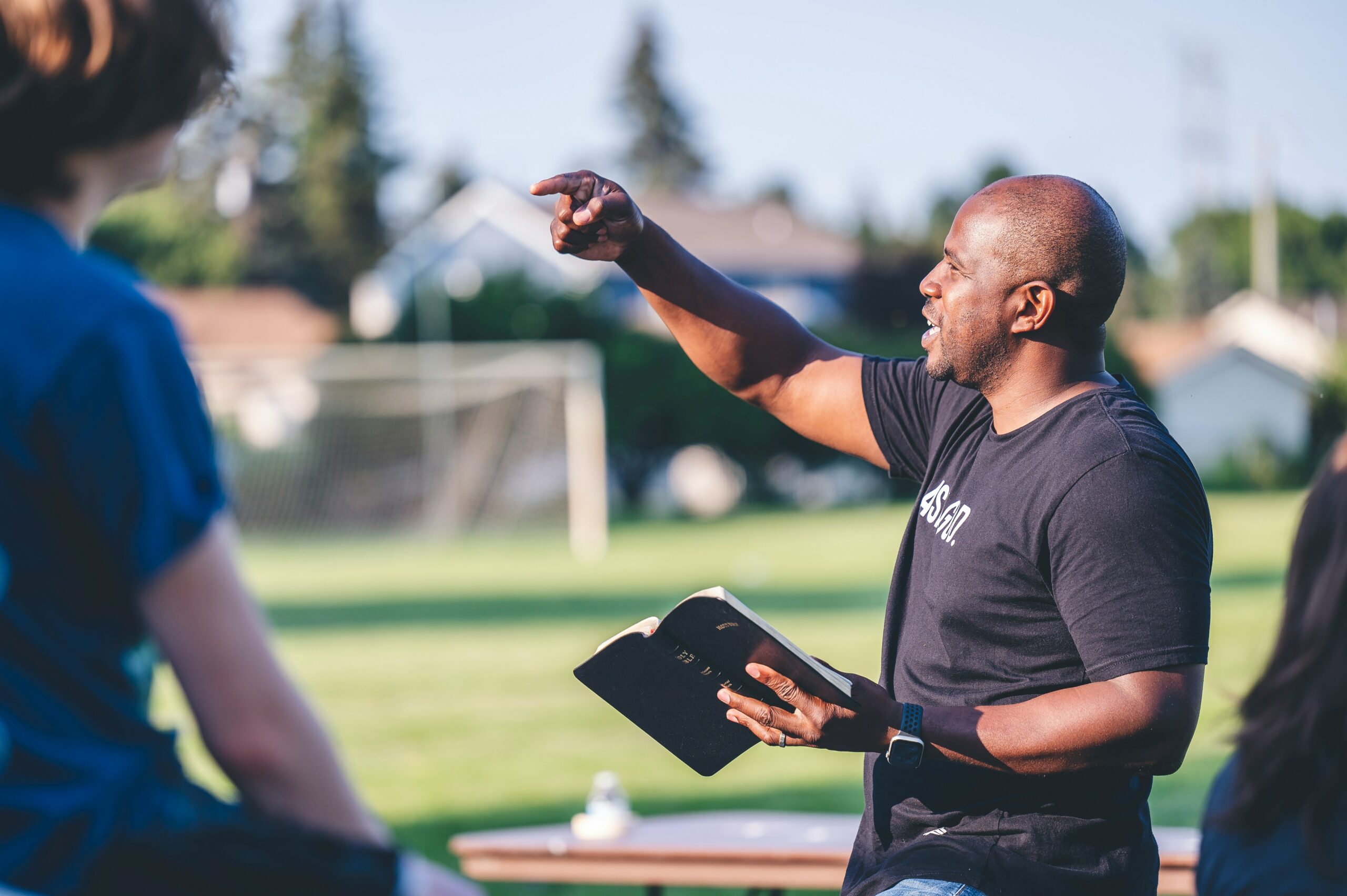Growing Pains
1In those days when the number of disciples was increasing, the Grecian Jews among them complained against the Hebraic Jews because their widows were being overlooked in the daily distribution of food. 2So the Twelve gathered all the disciples together and said, “It would not be right for us to neglect the ministry of the word of God in order to wait on tables. 3Brothers, choose seven men from among you who are known to be full of the Spirit and wisdom. We will turn this responsibility over to them 4and will give our attention to prayer and the ministry of the word.”
5This proposal pleased the whole group. They chose Stephen, a man full of faith and of the Holy Spirit; also Philip, Procorus, Nicanor, Timon, Parmenas, and Nicolas from Antioch, a convert to Judaism.6They presented these men to the apostles, who prayed and laid their hands on them.
7So the word of God spread. The number of disciples in Jerusalem increased rapidly, and a large number of priests became obedient to the faith.
8Now Stephen, a man full of God’s grace and power, did great wonders and miraculous signs among the people.9Opposition arose, however, from members of the Synagogue of the Freedmen (as it was called)—Jews of Cyrene and Alexandria as well as the provinces of Cilicia and Asia. These men began to argue with Stephen, 10but they could not stand up against his wisdom or the Spirit by whom he spoke.
11Then they secretly persuaded some men to say, “We have heard Stephen speak words of blasphemy against Moses and against God.”
12So they stirred up the people and the elders and the teachers of the law. They seized Stephen and brought him before the Sanhedrin.13They produced false witnesses, who testified, “This fellow never stops speaking against this holy place and against the law. 14For we have heard him say that this Jesus of Nazareth will destroy this place and change the customs Moses handed down to us.”
15All who were sitting in the Sanhedrin looked intently at Stephen, and they saw that his face was like the face of an angel.
Acts 6
The first five chapters of Acts have shown us much about the early Church, what the apostles did, and how their work, inspired by the Holy Spirit, led many people to abandon their previous lives and to accept Jesus as their Saviour. We see more and more people decide to become Christians. This next chapter is no different; the Church continues to grow, but for the first time we start to see the growing pains, particularly as the burden on the early Church leaders increases. In chapter six we also see once again how God’s work can lead to persecution, and the affirmation that whilst praying and preaching are the central elements of the Church’s work, looking after others is also very important.
In this chapter of Acts we stumble upon what the early Church considered to be the most important element of their work. The apostles feel that the focus of their work should “prayer and the ministry of the word,” that is teaching people about Christ. As the church grew the apostles found that they had more and more pressures on their time, and in Acts 6, we see that the disciples are getting concerned that they are being expected to administer aid to the needy, especially in this case to the Greek widows, as well as continuing their efforts teaching and healing all those who came to them. Whilst they may have been able to cope with the demand in the early days of the church, there are now a significant number of people who have signed up to follow Christ, and the disciples find themselves really pushed for time. The apostles decision, however, is to appoint others with the specific task of administering aid, enabling them to focus on their core ministry. This is telling since it reveals what the apostles believed their main focus should be; praying and teaching others about Jesus. They felt that they had been tasked with this role, and believed that they had been given the gifts necessary to carry out this function effectively. Do we as Christians today recognise the principle importance of prayer and the word? Do we dedicate ourselves to these activities in our own lives, to praying regularly and seeking out good teaching? If we feel that we have gifts in these areas do we share them with other people?
Whilst praying and teaching were considered by the apostles to be the most important element of what they did, they recognised that these were just two roles of many that the Church should carry out. In this passage we also see the importance that they place on supporting the needy and giving aid to those who needed it. When the leading apostles were asked what they should do, since they did not have time to teach, pray and administer aid, they could have responded that since teaching and prayer were the most important, the disciples should stop supporting the needy in order to focus on the Church’s primary task. They don’t do this, however. Instead, they task other people who were not so heavily involved with the Church’s teaching ministry to take over the tasks of providing aid to those who were in need. Even though the apostles place a firm emphasis on praying and teaching, they still believe that it is important for the Church to look after people. This is an example to us; do we as a Church support those less fortunate than ourselves, both inside and outside the Church? Do we look after those in need in our society, or do we neglect them? If this element of Christian service was important enough for the early Church, it makes sense that it should be important for us too!
There is a warning in this chapter, however, of the danger that doing God’s work can bring, as we have already seen several times in Acts. We see in this passage that the Church is continuing to grow, and every day more and more people are giving their lives to Christ. Luke, the writer of Acts, also tells us that even some Jewish Priests became Christians as a result of the teachings of the apostles. Unfortunately, this success did not go unnoticed by the highly religious people of Jerusalem, who clearly felt very threatened by the growth of the Christian Church. We witness Stephen, who had been appointed to take care of the Greek widows, performing great wonders and miraculous signs amongst the people. This angered some of the Jews, who took Stephen to the Sanhedrin on a trumped up case of blasphemy. Yet again, though, we see the Holy Spirit inspiring a Christian in times of trouble; they found that they could not argue against him, hence the need to lie to the Sanhedrin. If the Word of God is faithfully taught, we can expect to see jealousy and opposition, since it is threatening to those who do not believe, and it challenges their lives. If the opposition do not choose to accept the gospel, they can try to discredit and attack God’s workers. If we stand firm, though, God will come to our aid.
This chapter of Acts shows us much of great importance concerning the early Church. We see the centrality of the preaching of the word and of prayer to their mission. We also see that they do not neglect other areas of ministry, but believe that it is important to support those who are less fortunate. By witnessing what happens to Stephen, we also once again see how doing God’s work can lead to persecution, yet how the Holy Spirit will support us in our times of need. Above all else, we see the Church continuing to grow as more and more people accept Jesus as their saviour. Wouldn’t it be great if we could see that happening today!












Leave a Comment